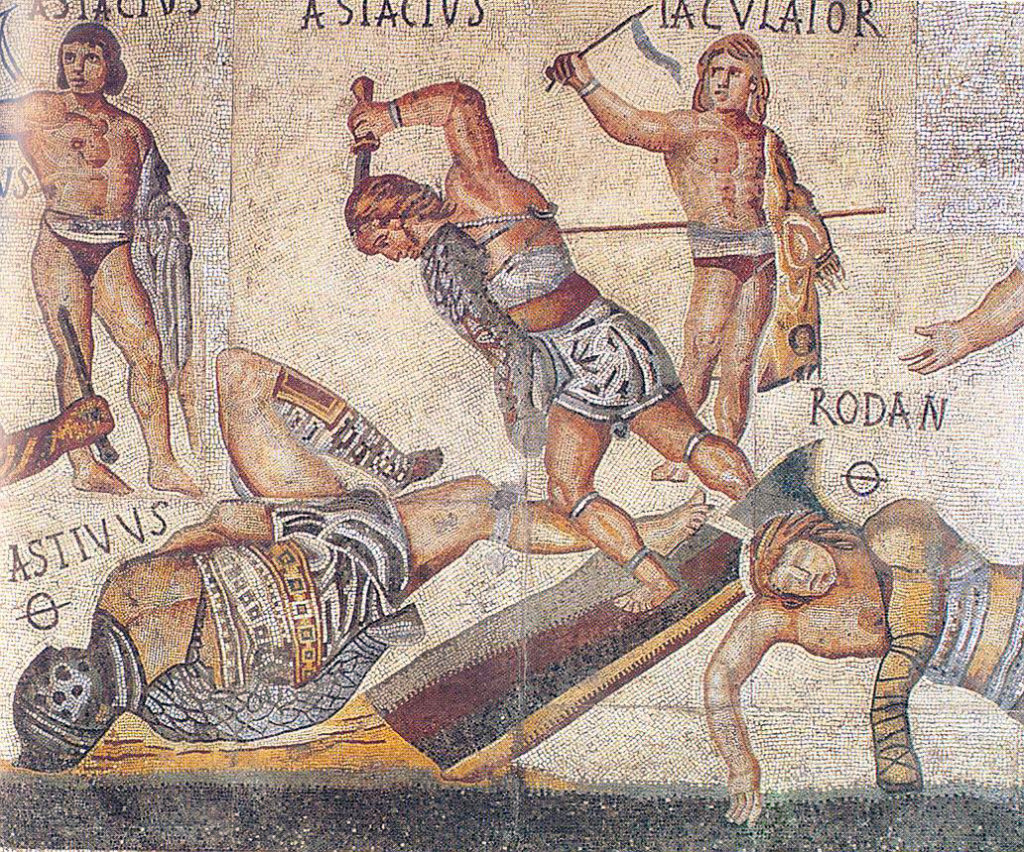Who is the most famous power couple in history? Beyoncé and Jay-Z? Bill and Hillary Clinton? No, the answer is Cleopatra and Julius Caesar.
Each led one of the most powerful countries in the world. Their combined relationship represented an almost unmatched level of concentrated power.
So how did these two historical figures end up together, and what did their love accomplish that centuries later people still recall the pair together?

Transition of Power
The roots of the couple’s relationship lie in the regional politics of Egypt and Rome, which existed long before them.
Cleopatra was part of the Ptolemaic dynasty. She came from a family that had ruled Egypt since Alexander the Great, while Caesar was part of the First Triumvirate. This was a triad of the most powerful men in Rome.
By the first century BCE, the Roman Empire was becoming the superpower of the region and was considering annexing Egypt. This is when Cleopatra’s father, Ptolemy XII, recognized that he would need to strike a deal with Rome to remain in power.
He appealed to the Roman Senate and paid an exorbitant amount for Rome to recognize his authority, incurring a massive debt from Roman lenders. When he did nothing about the Roman annexation of the Egyptian territory of Cyprus, Ptolemy was ousted from power in 51 BCE.
He was replaced with his children as co-regents: Ptolemy XIII and Cleopatra.
A Clash Between Siblings
While the transition of power was peaceful, it did not last long. Ptolemy XIII and Cleopatra both sought to have sole control over Egypt.
Cleopatra quickly began writing only her name on official documents, excluding Ptolemy XIII from real power. But she repeated the mistakes of her father in backing Gabinius, a follower of Pompey, as civil war erupted in Rome.
The Egyptian people did not care for a ruler whom they saw as submissive to the Roman empire, and public favor turned to Ptolemy XIII. He soon banished Cleopatra from the court and named himself the sole ruler in 48 BCE.
This set the stage for a civil war in Egypt which would reflect the one emerging in Rome.
Caeser Seeks Total Power
After his campaign in Gaul, Caesar sought to seize total power of Rome. He marched his army back into Italy. He defeated his former ally, Pompey, at the Battle of Parsalus in 48 BCE.
After the loss, Pompey fled to Alexandria, Egypt in hopes of finding refuge, since he had been friendly with Ptolemy XII in prior years. However, Ptolemy XIII, sensing the opportunity to set himself in good graces with the man who would soon be Rome’s most powerful citizen, had Pompey killed.
When Caeser arrived in Alexandria, Ptolemy XIII presented him with Pompey’s head. This disgusted Caeser. He decided that in the interest of Rome, he would determine who should rule Egypt. He called upon Ptolemy XIII and Cleopatra to present themselves.

Caesar and Cleopatra Meet
Since Ptolemy XIII still held power in Alexandria, Cleopatra was unable to simply meet with Caesar. Instead, she developed a plan to sneak into the palace past Ptolemy XIII’s guards to plead her case.
With the help of her servant Apollodorus, she wrapped herself in a carpet and was transported into Caesar’s chambers. Upon being revealed, Cleopatra seduced Caesar and he found himself enamored with her.
Their relationship was both romantic and politically advantageous. Cleopatra needed Caesar’s army to secure her position as the ruler of Egypt and depose her brother. While Caesar needed her immense wealth to fund his army’s conquest of Rome.
He ruled that Cleopatra and Ptolemy XIII were to become co-rulers of Egypt yet again, a decision that Ptolemy XIII despised. Rather than accepting this fate, he declared Cleopatra a traitor and declared war on her and Caesar.
The couple were held under siege for months until Caesar’s forces arrived from Syria. After which they soundly beat Ptolemy XIII and drowned him in the Nile.
Rather than installing Cleopatra as the sole ruler of Egypt, however, Caesar decided to make her co-ruler once again with her remaining 12-year-old brother, Ptolemy XIV.
Caesar’s Heir
Not long after, Cleopatra gave birth to Caesar’s son. The child was named Caesarion, or “Little Caesar.” They were Caesar’s only heir despite the fact Caesar had a Roman wife.
When Cleopatra and Caesarion returned to Rome with Caesar, the idea of a foreigner being the heir perturbed some Roman citizens. Cleopatra and Caesarion were wildly unpopular, although they were never under direct threat since they had the protection of Caesar.
The issue never came to pass though, as Caesar named his grandnephew his successor rather than his son. So when Caesar was murdered in 44 BCE by the Senate, Cleopatra fled Rome with her son and returned to Egypt.
Shortly after, her co-regent and younger brother mysteriously died, which left Cleopatra as the sole leader of Egypt. This allowed her to plan how to return her son to his rightful place in Rome.
Cleopatra and Marc Antony
Although their relationship had been deeply romantic, it did not prevent Cleopatra from developing a very similar relationship with another powerful Roman leader: Marc Antony. The relationship she formed with Antony mirrored her relationship with Caesar.
They were brought together by political maneuvering. But the couple also had a deeply romantic relationship and had several children together.
As with Caesar, Cleopatra stood with Antony during a Roman civil war, only this time her lover lost. After hearing (inaccurate) news that Cleopatra was dead during a battle, Antony killed himself by falling on his sword.
Upon hearing the news, Cleopatra allowed an asp to bite and poison her out of grief. Thus ended the second half of one of the most famous and powerful couples in history.
References
“Cleopatra, Julius Caesar and Mark Antony: how the last pharaoh’s love affairs shaped Ancient Egypt’s fate.” History Extra, May 12, 2023. https://www.historyextra.com/period/ancient-egypt/cleopatra-love-affairs-julius-caesar-mark-antony/.
“Julius Caesar and Cleopatra’s Relationship”. Odyssey Traveler, March 14, 2023. https://www.odysseytraveller.com/articles/caesar-and-cleopatra-in-egypt/.
Land, Graham. “Julius Caesar and Cleopatra: A Match Made in Power”. History Hit, July 26 2018. https://www.historyhit.com/julius-caesar-and-cleopatra-a-match-made-in-power/.

